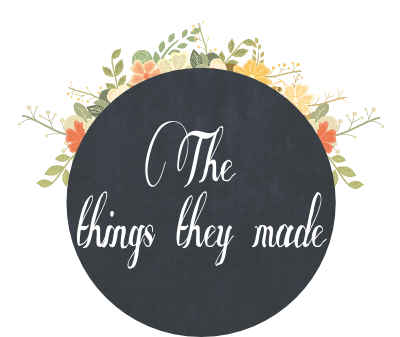I feel like I spent the first half of this week recovering from last week. What better way to clear your mind and remember the tiny wonderful things than to read a good book?
The Secret History by Donna Tartt
This one was recommended to me by a coworker, which is a new one for me; most of my recommendations come from close friends who know me well and understand what I need from a book. This book couldn't have been more spot on for me though, and I am so grateful not only that she recommended it, but that she brought it to the office book swap in December. I picked it up at the beginning of March and finished it just as March was coming to a close.
The book follows a group of students at a small New England college. Tartt is adept at writing a room full of people, which serves the book so well as there are so many characters going in and out of rooms, making phone calls, joining the table in the dining hall. The story is like none I could ever have guessed, and though it is unique, it touches on subjects of humanity and friendship that make even the least relatable circumstances somehow relatable.
Perhaps it's because I read this one as Winter threw its final tantrum, but I'd recommend you read this book during the colder months. It pairs well with a hot tea, and I'm a sucker for daydreaming about a book when I'm not reading it, so matching weather always helps.
Sharp Objects by Gillian Flynn
When a friend asked what I was reading, I explained this book as a "beat book." As in, I'm taking a beat after the intense love affair I had with the last book I read. I read Flynn's other novel, Gone Girl, and was pleasantly surprised at how much I loved it, so when I saw her first novel at Savers, I bought it without a second thought.
While Flynn has definitely grown as a writer since her debut, her gift for creating heart pumping and page turning stories has always been a given. The characters are unique and unpredictable, and they slowly reveal themselves to you and to each other. By the end, I couldn't stop reading and reacting aloud to the turns in the book. The very end felt a bit like an information dump, but by that point I was just glad to know the truth.
a visit from the goon squad by Jennifer Egan
This was one of those book's that I put on my to-read list back in 2011 when it was getting a lot of attention but never got around to. (Also on that list, for context: Freedom by Jonathan Franzen, which I've since read; Room by Emma Donaghue, which I bought at the same time as this one.) I kept seeing it at Savers and Goodwill but thinking I'd never read it, kept passing it up. Then one day I was just in the mood for buying books and scooped it up along with Room, Sharp Objects, Roald Dahl's Ghost Stories, I Was Told There'd Be Cake, and Eating Animals.
This book is marketed as a novel, but it felt more like a novel in stories to me. In fact, I remembered a couple of chapters because I'd read them as short stories somewhere before. Each chapter—or story—stands on its own; the stories and their characters intertwine toward the end, even if only peripherally. Someone's assistant is married to someone who used to know some other guy in college who is now married to a fan of that one guy's client. The main themes in the book are music and consumption (and consumption of music): the way "good" music is defined by what the consumer wants, to the chagrin of those whose tastes are no longer in style. My favorite look at music in the whole book is in Chapter 12 (which completely caught me off guard and pissed me off for about half a day; if you've read the book, you'll understand why), where Lincoln borders on obsession with the pauses in music. He makes looped tracks of the pauses from different songs, showing the different ways his family members react (endeared to his sister, pissing off his dad).
The book ends with a culmination of seemingly everything and everyone, not only in the book, but in New York City. It tells the story of a slice of a generation, the way they grew up to barely recognize the new world around them, let alone what they remember of their younger selves. That description sounds a little depressing, but it isn't. Egan does a great job of delicately pushing these characters through their lives, whether they like it or not—and who can't relate to that?
Up next on my to-read list: The News from Spain by Joan Wickersham, The Fun Parts by Sam Lipsyte, and A Gate at the Stairs by Lorrie Moore. Unrelated: the lady at our branch of the library recognizes me now.


No comments:
Post a Comment